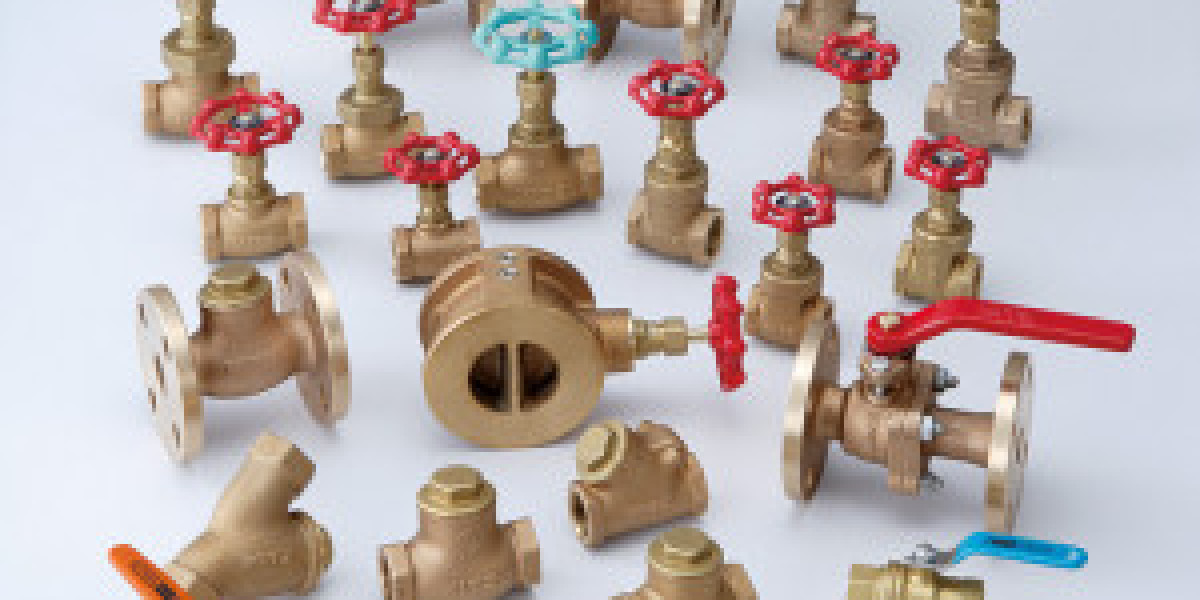brass valve is a highly reliable and widely used component designed to regulate, direct, or shut off the flow of liquids or gases in a piping system. Constructed from a copper-zinc alloy, brass valves are known for their corrosion resistance, machinability, durability, and affordability. These properties make brass valves suitable for a wide range of residential, commercial, and industrial applications, including plumbing, HVAC, water treatment, gas distribution, and irrigation systems.
What Is a Brass Valve?
A brass valve is a mechanical device that uses a movable component—such as a ball, disc, or gate—to control the flow of a fluid or gas through a brass body. Depending on its design and function, it can serve as an isolation valve, mixing valve, check valve, pressure control valve, or directional valve.
Types of Brass Valves
Brass Ball Valve
Uses a rotating ball with a hole through it to allow or block flow.
Offers full-port flow and excellent sealing.
Brass Gate Valve
Utilizes a gate or wedge that moves up or down to control flow.
Ideal for on/off applications in large pipelines.
Brass Check Valve
Prevents backflow by allowing fluid to flow in one direction only.
Common in water and fuel systems.
Brass Globe Valve
Regulates flow using a disc and seat.
Suitable for throttling applications.
Brass Needle Valve
Provides fine control over flow rates in precision systems.
Brass 3-Way Valve
Allows fluid to be directed between multiple paths.
Used for mixing, diverting, or bypassing flow.
Advantages of Brass Valves
Corrosion Resistance: Brass is highly resistant to water and many mild chemicals, reducing the risk of leaks and failure.
Excellent Malleability: Easy to machine and install with threaded, soldered, or compression fittings.
Durability: Resistant to high pressure and temperature fluctuations in residential and commercial systems.
Non-Sparking: Safe to use in gas or fuel systems.
Cost-Effective: Offers a balance of quality and affordability compared to bronze or stainless steel.
Common Applications
Residential Plumbing: Control water supply to sinks, toilets, and heaters.
HVAC Systems: Manage flow in heating and cooling lines.
Industrial Processing: Control steam, water, and air in manufacturing environments.
Irrigation: Distribute water in agricultural and landscape systems.
Gas Distribution: Safe handling of propane, natural gas, and compressed air.
Installation Tips
Use thread sealant or PTFE tape on threaded brass valves to ensure leak-free joints.
Avoid over-tightening to prevent damage to the brass threads.
When used in water systems, ensure compatibility with pipe materials (e.g., copper, PEX).
For outdoor installations, use valves with weatherproof handles and corrosion protection.
Limitations of Brass Valves
Not Suitable for Highly Corrosive Fluids: Brass can corrode in acidic or high-chloride environments.
Lead Content in Older Valves: Modern brass valves are lead-free, but older models may not meet today’s potable water safety standards.
Temperature Limits: Typically rated up to 200–250°F (93–121°C), which may not be adequate for extreme heat applications.
Conclusion
A brass valve is a go-to solution for fluid control thanks to its balance of strength, corrosion resistance, ease of use, and affordability. Whether you're managing water flow in a residential setting or regulating gas in an industrial pipeline, brass valves offer long-lasting performance and versatility. Their availability in numerous configurations makes them suitable for nearly every application, from basic plumbing to complex automated systems.






